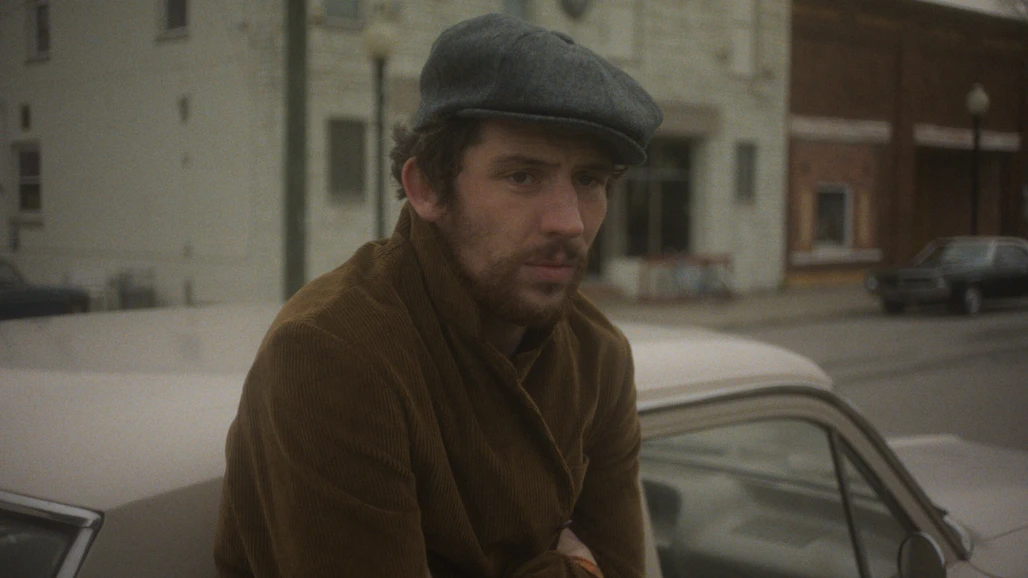
(Check out Savina Petkova’s The Mastermind movie review. The film just had its premiere at the Cannes Film Festival. Seen it? Join the conversation with HtN on our Letterboxd Page.)
Kelly Reichardt’s heartful heist movie, decisively named The Mastermind, is not ‘playing with genre’ in the same way you’d expect having seen her Night Moves as an eco-thriller or First Cow as a western. The Mastermind’s distanciation from obvious genre signifiers only works to reveal the pure, aimless soul at the center of the film. Lead man Josh O’Connor follows up his Cannes competition debut as a scruffy grave-robber in La Chimera with the role of James (J.B.) Mooney, a write-off carpenter in 1970s Massachusetts, who never finished art school and really wants to prove himself by doing something risky, making a buck in the meantime. Perhaps he has seen too many heist films, but most probably overestimates his knowledge of the black market for artworks, because it’s hard to believe that this puppy-eyed father of two would be planning a museum robbery.
The first time he appears on screen is already a rewarding insight into how his mind works. On a day like any other, the Mooney family goes to the local museum and while his wife Terri (Alana Haim) and two boys roam around, James makes a note on the lack of security around a certain quartet of paintings by Arthur Dove. Dexterously (and shown in close-ups a’la Pickpocket, a surprisingly apt reference for the film as a whole), he opens a small drawer and steals a figurine from the exhibition, before slipping it in Terri’s purse. Nobody notices, not even her. It is perhaps the overwhelming sense of detachment James feels from both his own family and his parents—the father a judge, the mother concerned enough to keep lending him money—that motivates him into organizing the robbery.
What follows is the antipode of your regular heist movie; the thrill of the chase is so resolutely absent that The Mastermind becomes an anti-action movie. The heist scene is, paradoxically, one of the best of its kind because it substitutes the adrenaline rush with a comic series of mishaps: the plan gets derailed, there is a witness to factor in, and nobody seems to be in a rush. James hides the paintings in a farmhouse and tries to keep it cool as the heist makes front page news.
As James seems too focused on the paintings to keep the bigger picture in mind, Reichardt makes the audience aware of the wider context. The Vietnam war is ongoing, and so is the women’s liberation movement. America is changing and the echo of the country’s promises slowly dies out. Against this backdrop, O’Connor’s character becomes a deeply tragic one, and much of his pain weighs down the silences that accompany him wherever he goes.
There is little dialogue in the film, but the beautifully quiet poeticism that is the signature style of the director’s collaboration with cinematographer Christopher Blauvelt emphasizes the throbbing hope for a better life. That said, the stakes are even higher for a man who seems to already have everything: a loving family, a home, and the status of being the judge’s son. What James doesn’t have is a career; so he finds it viable to risk it all in order to ‘make it’, even if that means failing as an art thief. True to Kelly Reichardt’s cinema of empathy, The Mastermind extends an invitation to take a closer look at a character who refuses to do that himself.
– Savina Petkova (@SavinaPetkova)
2025 Cannes Film Festival; Kelly Reichardt; The Mastermind











